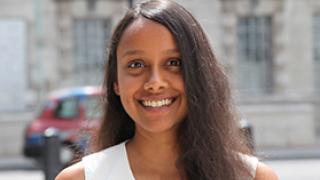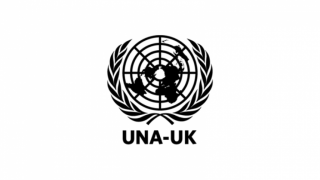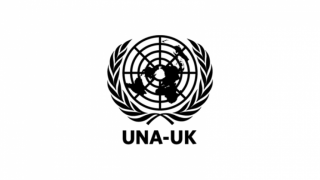
On 25 January, UNA-UK's Executive Director, Natalie Samarasinghe, addressed UNA members and others from across the Southern Counties region at a meeting hosted by UNA Lymington branch on the topic: is the UN still relevant in today's world? The report below was prepared by Virginia Kelly for the local press.
How is the United Nations Changing the World?
Natalie Samarasinghe, executive director of UNA-UK, focused her talk to the Lymington United Nations Association on the relevance of the United Nations in the world today. Nearly seventy years on from its founding the UN works in a much-changed world and, like all institutions, it finds change difficult as it gets older. It is not perfect, and the role of UNA-UK is partly to encourage change where it is needed. Nevertheless, the United Nations remains a symbol of hope for most people and countries. Without it, where would we go for a truly international forum in an unstable and changing world?
One key aspect of the UN is that it works around the world on all cross-border issues, something no other organisation does. Some of its most positive results come from this. UN agencies such as the World Food Programme, the Refugee Agency, and the maternal health work of the Population Fund are doing measurable and irreplaceable work around the world. In disaster relief the UN is usually first in and last out,specialising in creating and maintaining systems for quick and effective response to disaster events. And more than 100,000 people are involvedin UN peacekeeping missions, including soldiers but also civilian personnel providing support for elections, for example.
The UN has other, less reported but equally important, success stories. One is in developing global standards. Around the world, the bar has been raised for defining civilian rule and governance by law, and theInternational Court of Justice provides a forum for adjudicating disputes between countries. Another area is statistics; effecting change requires known starting points. The UN is the major compiler of world statistics and documentation of conditions in countries or regions.
Looked at over time, the United Nations has had a strategic role in changing mind sets internationally. From environmental concerns to the Millennium Development Goals, movements can be traced from early United Nations sponsored meetings through to main-stream action. The cutting edge of this may be seen in current international discussions about enforcing the responsibility of states to protect their civilian populations.
UNA-UK has a role as both a supporter and a 'critical friend' to the UN, said Ms Samarasinghe and it is important to acknowledge areas where change is needed. We seem recently to have entered a period of global instability and disenchantment with institutions; this must not become a narrative of gloom with spokespeople arising only from extreme groups. The UN needs to step up to the apparent deficit in moderate leadership. Even within the constraints of its organisation and structure, it must speak truth to power.
For example, the UN could speak proactively about difficult situations, not taking sides but being more clear about the hard choices that are faced. Statistical reports should always be publicly released even when they may embarrass particular countries. Necessary debates on cross-border problems should be started, not just responded to. And the UN could work harder on capturing public imagination on global issues, using modern communication methods to push for engagement from civilian populations.
The debate about the veto in the Security Council needs encouragement and facilitation. And there needs to be an open-minded look at the selection of the Secretary-General, with the aim of fostering a true global search with a transparent process and several choices presented to the General Assembly.
A lively question and answer period followed Ms. Samarasinghe's talk, ranging across Israel and Palestine, the United Nations in the National Curriculum, and the role of the Security Council and the Secretary-General. More information on UNA-UK and links to the issues raised can be found on the web site: www.una.org.uk or by contacting the London office on 020 7766 3454.
The next Lymington UNA meeting will be at the Lymington Community Centre
on Saturday February 22nd at 2 pm. Mr and Mrs Dequatre-Cheesman will
speak on their fieldwork experiences with Doctors Without Borders (MSF).
Everyone is welcome.






